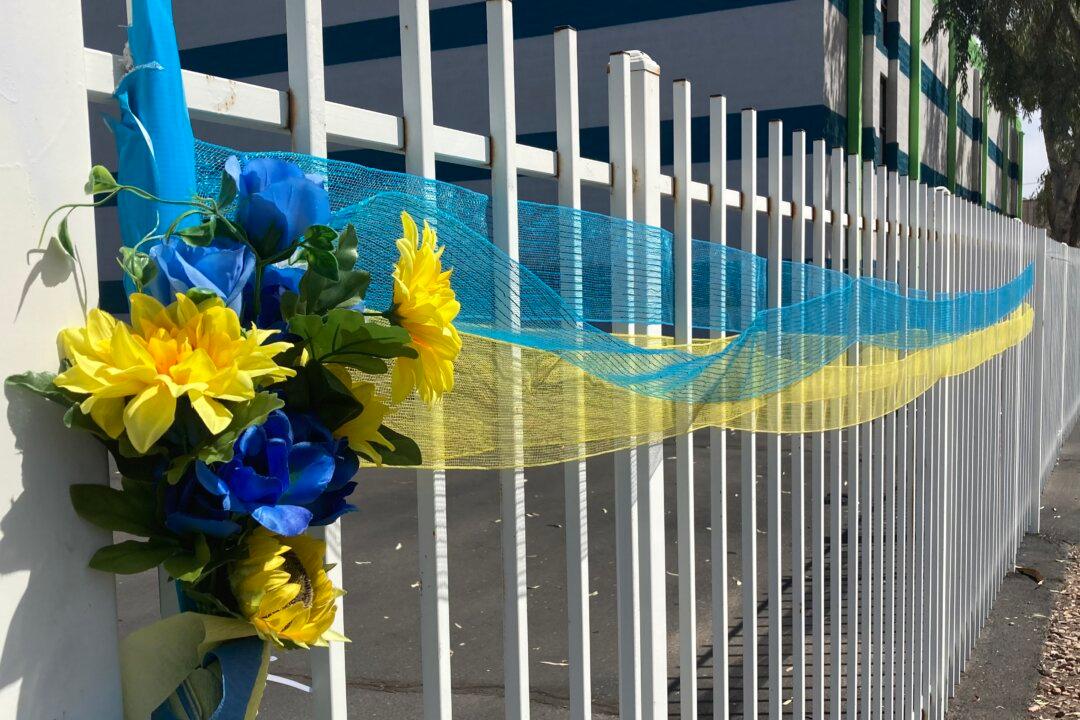GOODYEAR, Ariz.—There was a time not long ago when Valentina Cerkas could tell the world she was from Russia.
Now she feels uncomfortable saying it out loud following the Russian invasion of Ukraine on Feb. 24.

GOODYEAR, Ariz.—There was a time not long ago when Valentina Cerkas could tell the world she was from Russia.
Now she feels uncomfortable saying it out loud following the Russian invasion of Ukraine on Feb. 24.